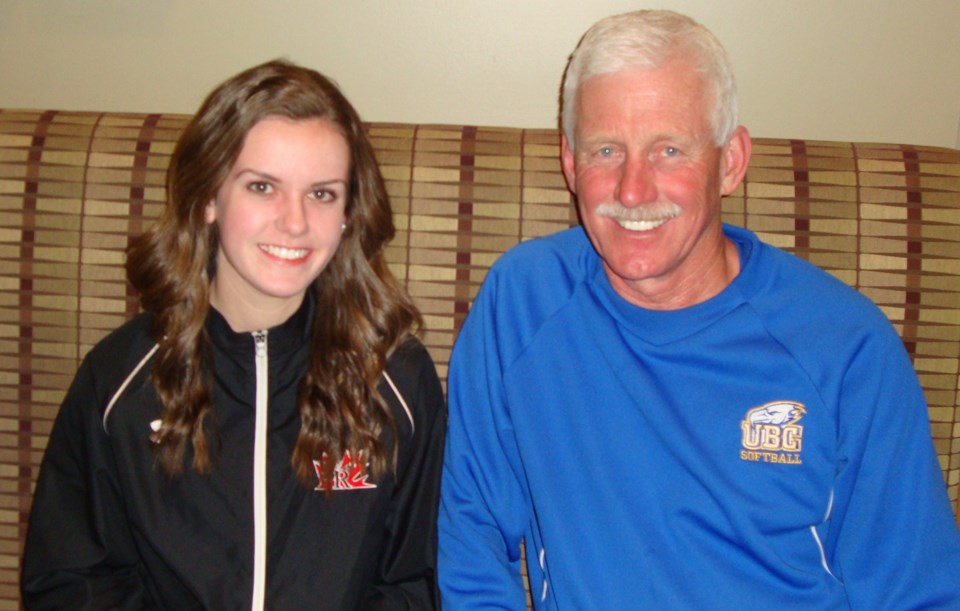Former Burnaby Oakey bantam pitcher Emma Tuson is putting all her softballs in one basket.
The 18-year-old Maple Ridge resident recently committed to the University of British Columbia women’s softball program along with Delta’s Zoe Gillis despite the sport being dropped from varsity status following a recent review of athletics at the Point Grey campus.
“Education is really important (to me) over and above everything,” said Tuson. “I’ve heard great things about Gord (Collings) and I know the team does well, so those were the main factors. Right now, I’m looking forward to this season and see what happens and take it as it comes.”
That reality began last Friday (April 4), when the deadline for the appeal process passed, following the late February assessment of varsity sports at UBC that reduced the men’s and women’s alpine and Nordic skiing teams, as well as women’s softball, to competitive club status.
These five club teams will receive support for honorariums for coaches and skill development and access to training facilities when the upcoming 2015 varsity season has ended.
“While keeping 24 (of 29) teams, our approach will concentrate resources where teams are demonstrating success in achieving our vision,” said Louise Cowin, UBC vice-president of students in a Feb. 28 school media release.
That vision appeared to be those programs that historically achieve athletic excellence, have a solid infrastructure and a private funding model already in place.
Under the proposed review, UBC would give men’s and women’s basketball, swimming and volleyball and the football program enhanced status, which would include a greater share of the increased $6.4-million annual athletics budget.
Thirteen other sport programs, including cross-country, golf, rowing, soccer, track and field, women’s ice and field hockey and men’s rugby, would continue to receive at or near their current levels of support, while baseball, men’s field and ice hockey, and women’s rugby were able to retain their varsity status, while given further time to pursue other areas of partnerships and funding.
UBC softball head coach Gord Collings said his program was dropped primarily because it lacked a playing field on campus and currently is not part of an established conference. UBC softball plays in the Association of Independent Associations in the NAIA.
Collings blames the university for both program shortcomings, suggesting proposals for a home field were never followed through with, while an opportunity to enter the NAIA’s Cascade conference was missed years ago when the school was looking into whether or not to make a jump to the NCAA.
With the cost of running a softball program making up less than two per cent of the university’s annual athletic budget, Collings said the girls just need a chance to prove themselves.
“I just don’t see why they can’t commit to us,” said Collings, who maintains the program has a five-year plan in place towards sustainability. “The girls need an opportunity to demonstrate they can do it. I’m honoured they decided to it even though there might only be one year – they’re taking a chance – But at UBC they’ll get a great education.”
As a team player, Tuson adds, it’s just not in her makeup to back out now.
“Playing in a team sport, you can’t really think I’m going to do what is best for me. When you commit to a team, I don’t think you can commit that way,” she said.
The 13-13 Thunderbirds currently boast a five-game winning streak. UBC also has a doubleheader on tap today at Simon Fraser University’s Beedie Field, beginning at 5 p.m.
Following that, the T-Birds will take part in the AII regional tournament in Lawrenceville, Georgia in May.



